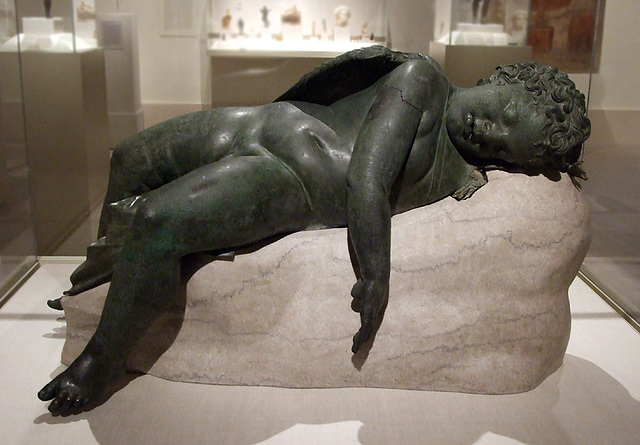Sleeping Eros Sculpture in the Metropolitan Museum…
Bronze Statue of a Roman Boy in the Metropolitan M…
Bronze Cybele in the Metropolitan Museum of Art, A…
Detail of Architectural Decoration on Buildings on…
Detail of Architectural Decoration on Buildings on…
Intersection of Broadway and Steinway St. in Astor…
New Building on Broadway, off of Steinway St. in A…
Parking Lot Mural on Steinway St. in Astoria, Apri…
Detail of the Parking Lot Mural on Steinway St. in…
Botanica off of Steinway St. in Astoria, April 200…
Map of Forest Hills Gardens, April 2007
Tudor House in Forest Hills Gardens, April 2007
House in Forest Hills Gardens, April 2007
Street in Forest Hills Gardens, April 2007
Street in Forest Hills Gardens, April 2007
House in Forest Hills Gardens, April 2007
Brown Tudor House in Forest Hills Gardens, April 2…
Tree in Forest Hills Gardens, April 2007
House in Forest Hills Gardens, April 2007
First Church of Christ, Scientist in Forest Hills…
First Church of Christ, Scientist in Forest Hills…
Detail of the War Memorial in Forest Hills Gardens…
Attatched Houses on Greenway Terrace in Forest Hil…
Etruscan Terracotta Architectural Plaque with Lotu…
Etruscan Architectural Terracotta Relief in the Me…
Lamp on E. 79th Street, April 2007
Cat Sculpture by Fernando Botero on E. 79th Street…
Cat Sculpture by Fernando Botero on E. 79th Street…
Theodore Roosevelt Memorial in Front of the Museum…
Ramp Closed Sign at the Marina in Seaford on Easte…
Marina in Seaford on Easter, April 2007
House in Need of Painting on Sands Lane in Seaford…
Stained Glass Lamp in Aunt Barbara's House on East…
Marina in Seaford on Easter, April 2007
Marina in Seaford on Easter, April 2007
Girl's Dresses in Macy's in Newport Centre Mall in…
Mixer Display in Macy's in Newport Centre Mall in…
Newport Centre Mall in Jersey City, April 2007
Turtle Mosaic in the Pavonia-Newport NJ Path stati…
Fish Mosaic in the Pavonia-Newport NJ Path station…
Mosaic in the Pavonia-Newport NJ Path station, Apr…
Mosaic in the Pavonia-Newport NJ Path station, Apr…
Map of the NJ Path System, April 2007
Mosaic in the Pavonia-Newport NJ Path station, Apr…
"In God We Trust" Sculpture by Folkert de Jong at…
Location
See also...
Keywords
Authorizations, license
-
Visible by: Everyone -
All rights reserved
-
350 visits
Sleeping Eros Sculpture in the Metropolitan Museum of Art, Sept. 2007


Statue of Eros sleeping, Hellenistic or Augustan, 3rd century B.C.–early 1st century A.D.
Greek or Roman
Bronze; L. 33 9/16 in. (85.24 cm)
Rogers Fund, 1943 (43.11.4)
The Hellenistic period introduced the accurate characterization of age. Young children enjoyed great favor, whether in mythological form, as baby Herakles or Eros, or in genre scenes, playing with each other or with pets. This Eros, god of love, has been brought down to earth and disarmed, a conception considerably different from that of the powerful, often cruel, and capricious being so often addressed in Archaic poetry. One of the few bronze statues to have survived from antiquity, this figure of a plump baby in relaxed pose conveys a sense of the immediacy and naturalistic detail that the medium of bronze made possible. He is clearly based on firsthand observation. The support on which the god rests is a modern addition, but the work originally would have had a separate base, most likely of stone.
This statue is the finest example of its kind. Judging from the large number of extant replicas, the type was popular in Hellenistic and, especially, Roman times. In the Roman period, statues of Sleeping Eros decorated villa gardens and fountains. Their function in the Hellenistic period, however, is less clear. They may have been used as dedications within a sanctuary of Aphrodite or possibly erected in a public park or private, even royal, garden.
Text from: www.metmuseum.org/toah/ho/04/eusb/hod_43.11.4.htm
Greek or Roman
Bronze; L. 33 9/16 in. (85.24 cm)
Rogers Fund, 1943 (43.11.4)
The Hellenistic period introduced the accurate characterization of age. Young children enjoyed great favor, whether in mythological form, as baby Herakles or Eros, or in genre scenes, playing with each other or with pets. This Eros, god of love, has been brought down to earth and disarmed, a conception considerably different from that of the powerful, often cruel, and capricious being so often addressed in Archaic poetry. One of the few bronze statues to have survived from antiquity, this figure of a plump baby in relaxed pose conveys a sense of the immediacy and naturalistic detail that the medium of bronze made possible. He is clearly based on firsthand observation. The support on which the god rests is a modern addition, but the work originally would have had a separate base, most likely of stone.
This statue is the finest example of its kind. Judging from the large number of extant replicas, the type was popular in Hellenistic and, especially, Roman times. In the Roman period, statues of Sleeping Eros decorated villa gardens and fountains. Their function in the Hellenistic period, however, is less clear. They may have been used as dedications within a sanctuary of Aphrodite or possibly erected in a public park or private, even royal, garden.
Text from: www.metmuseum.org/toah/ho/04/eusb/hod_43.11.4.htm
- Keyboard shortcuts:
Jump to top
RSS feed- Latest comments - Subscribe to the comment feeds of this photo
- ipernity © 2007-2024
- Help & Contact
|
Club news
|
About ipernity
|
History |
ipernity Club & Prices |
Guide of good conduct
Donate | Group guidelines | Privacy policy | Terms of use | Statutes | In memoria -
Facebook
Twitter

Sign-in to write a comment.